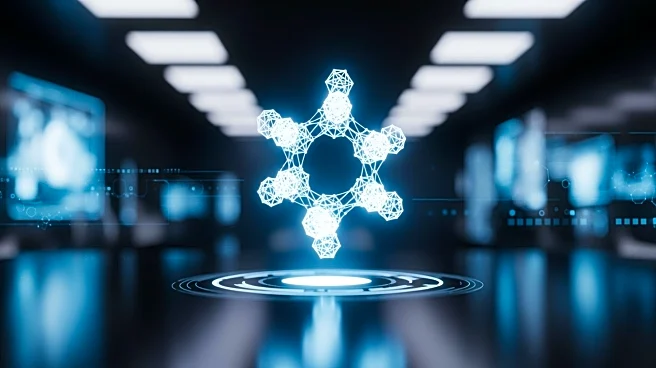What's Happening?
The interstellar object known as 3I/ATLAS has become a focal point of scientific inquiry and conspiracy theories. Observations by the MeerKAT radio telescope in South Africa have established a detection
limit indicating no technological radio transmission from 3I/ATLAS, despite detecting numerous signals that were deemed human-made interference. Broadcaster Alex Jones and UFO commentator Daniel Liszt have alleged that intelligence agencies are fabricating a fake extraterrestrial 'psyop' centered around 3I/ATLAS. However, Avi Loeb, a prominent scientist, has dismissed these claims, emphasizing the lack of evidence for such an operation. Loeb insists that the anomalies observed in 3I/ATLAS are genuine scientific phenomena rather than a manufactured narrative.
Why It's Important?
The debate surrounding 3I/ATLAS highlights the tension between scientific inquiry and conspiracy theories. The object’s unusual behavior challenges established comet physics, prompting serious scientific investigation. However, the unfounded claims of a 'psyop' risk overshadowing legitimate research and could undermine public trust in scientific institutions. The situation underscores the need for transparency and rigorous data analysis to maintain credibility in scientific discourse. As NASA prepares for a significant event related to 3I/ATLAS, the focus on clear scientific communication becomes crucial to counteract misinformation.
What's Next?
As NASA's November 19 event approaches, the scientific community is expected to release more data and imagery related to 3I/ATLAS. This transparency is vital to dispel conspiracy theories and reinforce public trust in scientific findings. Continued observation and analysis of 3I/ATLAS will likely provide further insights into its anomalous behavior, contributing to our understanding of interstellar objects. The scientific community must remain vigilant in communicating findings clearly and effectively to prevent the spread of misinformation.
Beyond the Headlines
The discourse around 3I/ATLAS reflects broader societal issues regarding the intersection of science and conspiracy theories. The allure of sensational narratives can distract from genuine scientific inquiry, highlighting the importance of critical thinking and evidence-based reasoning. This situation serves as a reminder of the challenges faced by scientists in maintaining public trust and the need for robust communication strategies to address misinformation.









